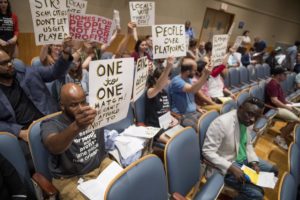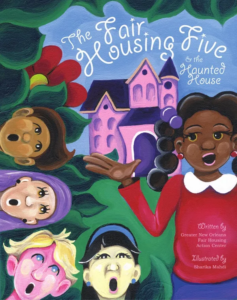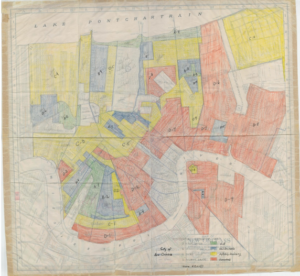Blog

Let’s Protect Families From Housing Discrimination
06th Mar 2020
The Fair Housing Act (FHA) protects people from discrimination based on race, color, sex, religion, national origin, disability and family status. What exactly does the law mean by “family status?” Family status refers to having children under the age of 18 living with you (or who you are in the process of gaining custody of). […]

28 Years Ago, New Orleans Banned Krewe Discrimination. What is the City Doing Today?
21st Feb 2020
As February comes to an end and New Orleans celebrates Mardi Gras, LAFHAC is looking back on the Mardi Gras season of 1992. That year, Dorothy Mae Taylor, the first African American woman elected to the Louisiana State Legislature and New Orleans City Council, spearheaded an anti-discrimination ordinance in New Orleans. This ordinance, known informally as […]

Approval Arrives for Proposed Mixed-Income Development in the Bywater
17th Feb 2020
Following deliberations between New Orleans City Council and members of the Neighbors First for Bywater (NFB) community group, the Housing Authority of New Orleans (HANO) finally received full approval for a proposed development at 4100 Royal Street in the Bywater. This proposed mixed-income development will bring over 130 new housing units to the area, and begin […]

New Orleans City Council Passes Ordinances Regulating Short Term Rentals
17th Feb 2020
Since the city’s original legalization of short-term rentals (STRs) in 2017, the rental of properties by platforms such as Airbnb and Homeaway has boomed. As a result, city councilmembers and community advocates called for a revision of the existing laws, and an exploration of the impact of STRs on the city. In particular, advocates called […]

Celebrating Black History Month with the Children in Your Life!
07th Feb 2020
February marks the beginning of Black History Month, a time to recognize and celebrate African American accomplishments and history. This Black History Month, LaFHAC is reflecting on the courage and perseverance of freedom fighters of the Chicago Freedom Movement of the 1960s. The Chicago Freedom Movement worked to end discriminatory housing practices and form tenants’ […]

HUD’s New Rule to Address Segregation Doesn’t Mention Segregation
01st Feb 2020
When the Fair Housing Act was passed in 1968, it included a provision called the Affirmatively Furthering Fair Housing, or AFFH, principle. The AFFH principle requires any jurisdiction that receives money from HUD to use those funds in a way that furthers integration and equality. This provision was meant to ensure that federal, state, and […]
It’s Time to Move the Smart Housing Mix Forward
13th Dic 2019
Back in March, we praised the New Orleans City Council for pushing the Smart Housing Mix one step closer to creating real change for the working people of New Orleans. The Smart Housing Mix ordinance would require any new housing developments of 10 units or more in historic core neighborhoods to include affordable units. With the latest […]
Dismantling Charity Hospital’s Legacy
06th Dic 2019
Since its inception in the 1730s, Charity Hospital was ahead of its time. In contrast to the social norms of the time that discriminated against those with lower incomes, the hospital was founded with the purpose to “establish and maintain a hospital for the poor people of New Orleans.”Charity Hospital even upheld these guiding principles throughout the Civil […]
World AIDS Day: A Look at HIV Status and the Fair Housing Act
29th Nov 2019
December 1st is World AIDS day, which aims to bring awareness to the HIV/AIDS pandemic, to unite people worldwide in the fight against HIV, to support those with HIV, and to commemorate those who have lost their lives due to an AIDS-related illness. Globally, it is estimated that 36.7 million people are living with HIV. In the United […]
Reasonable Accommodations for Tenants with Disabilities in Nursing Homes
15th Nov 2019
Living in a nursing home or in an assisted-living facility is meant to help relieve the uncertainty of independent living for elderly individuals and persons with disabilities. However, the housing rights of nursing home residents can be violated by nursing home staff if they fail to provide reasonable accommodations for residents with disabilities. One such […]

